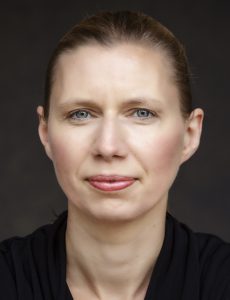 Gabriella Day was a GP partner in Southampton for 8 years and now works as a locum. Part of her work has involved visiting elderly patients throughout a larger geographical area covered by several practices.
Gabriella Day was a GP partner in Southampton for 8 years and now works as a locum. Part of her work has involved visiting elderly patients throughout a larger geographical area covered by several practices.
‘There is an efficiency inspired by love, which goes far beyond and is much greater than the efficiency of ambition; And without love, which brings an integrated understanding of life, efficiency breeds ruthlessness.’
(J Krishnamurti, Education and the significance of life, 1992)1
It’s 2024 and the NHS is at breaking point.
Is more investment the answer? Physicians Associates? Advanced Clinical Practitioners? Artificial Intelligence? More protocols, guidelines, pathways and referral management systems?
…Just do more?
Departments and individuals blame each other for deficiencies. Threatened with drowning under the sheer weight of unmet need we impose boundaries on our clinical activity.
Straightforward problems are easily managed: complex ones fall through the net. The burden of complexity becomes an insurmountable mountain. How can we tackle it?
We need to be a lot less clinical about how we define need.
Instead of distancing ourselves from patients we connect. Instead of imposing standardised management plans we listen more. Instead of tackling one inconsequential aspect of a patient’s health need in isolation we see it within the context of their bigger picture, understanding the wider implications and interconnectivity of each problem. Instead of perceiving the tide of unmet need in our patients as a threat, we use It to better understand each presenting issue.
However, we must address need and not demand, saying no to inappropriate demands and being proactive with and perceptive to genuine need.
We need to be a lot less clinical about how we define need. Confining ourselves rigidly to clinical productivity, will not address the sheer volume of unmet need. What will achieve this is to improve our listening, addressing the hidden issues behind the presenting complaint.
We continually underestimate, (perhaps because we don’t know how or lack the language to discuss it) the emotional need, the spiritual need and the positive impact addressing these would have on patients’ ability to self-manage. We need to be empowering patients, not fearing them.
Providing an ever-increasing number of interventions, more empty, distant patient contacts, more hollow management plans, is never going to satisfy the need for compassion, empathy and understanding that is a basic human requirement.
In our current healthcare system the dominant medical, reductionist paradigm is operating so out of step with the complex emotional and spiritual human being that the unmet need presents itself in ways that are acceptable to the medical establishment thereby prompting fruitless interventions.
In ‘Sick and Tired, (Healing the Illnesses Doctors Can’t Cure)’, Dr Nick Read describes how patients suffering psychological distress present their illness in varied ways according to the interests popular with the medical establishment of the time. Somehow patients find a way to get their needs met, but when achieved through inappropriate means it is costly to doctor, patient and the health service. If we could permit patients to voice their real need we would cut out a lot of drama.2
Remote consultations and ‘e-consults’ (where patients outline their problems online via a text proforma) can be useful, however, only when used appropriately. When used as a barrier to accessing appropriate advice ‘e-consults’ cause harm. When telephone consultations are used as a poor substitute for a home visit, they cause harm. If used as a means of enabling lazy medicine they are a blight on the health service.
We don’t need more barriers. We need more finely tuned tools of discernment.
Barriers in health are counterproductive.
Getting the patient to the right place as quickly as possible is efficient medicine. Slavish adherence to protocols when a clinical need is beyond doubt causes unnecessary suffering.
Doing the right investigation at the right time prevents delays and enables targeted interventions to occur in timely fashion.
We don’t need more barriers. We need more finely tuned tools of discernment. We will not find that in Artificial Intelligence (which is merely the efficient application of multiple protocols), but by fully engaging our clinical skills, informed by our own experience, with compassion and close attention to the patient in front of us.
Advances in clinical medicine are of great benefit, but their value is diminished when implemented without heart. Medicine is not a tick box exercise. Checklists give people permission to switch off their brains.
Overlooked tools in medicine are:
- Self-awareness
- Interest in the patient
- Compassion
- A desire to achieve the best outcome for the patient
Heart-based medicine is practised when you have fully tuned into the patient’s needs. It is not resource heavy, but improves efficiency.
Many practitioners will be practising heart-based medicine, but because they aren’t doing it consciously, with appropriate safeguards it is leading them to burnout. When practised with discernment and attention to one’s own well-being, it is a means to prevent burnout.
Let’s acknowledge this elephant in the room and address it directly so we can start to practice much more effectively, in alignment with our patients and colleagues, rather than in conflict with them. There will be no place for lazy or egotistical medicine to hide and the resulting health service will be a place where patients and practitioners thrive.
References
- J Krishnamurti, Education and the significance of life, Chapter 1, Gollancz, 1992, ISBN 0-575-04676-7
- Nick Read Sick and Tired — Healing the Illnesses Doctors Cannot Cure. Weidenfeld and Nicolson. 2005 HB, 352pp, £16.99, 0297607057.
Featured photo by Tim Marshall on Unsplash.






